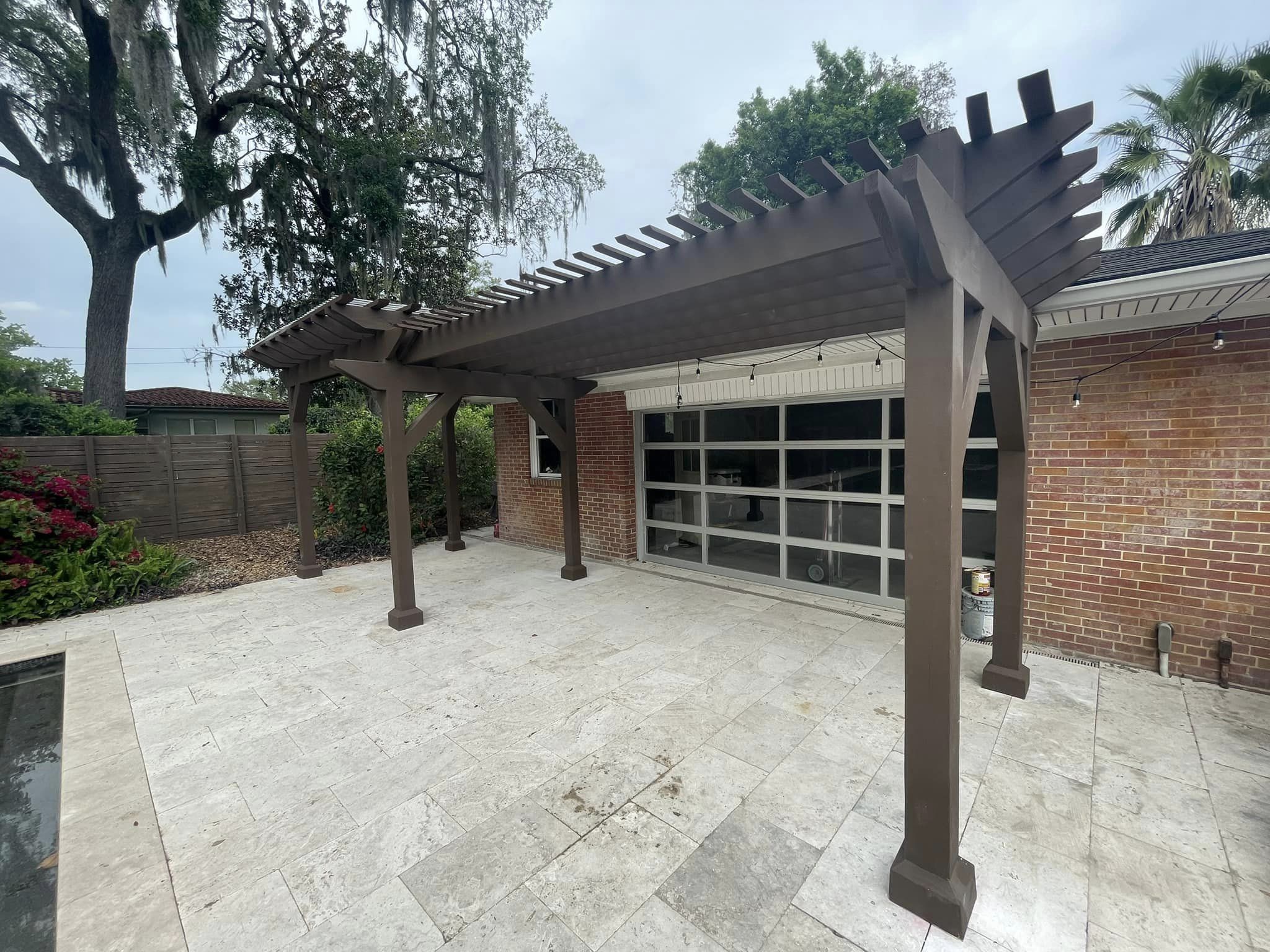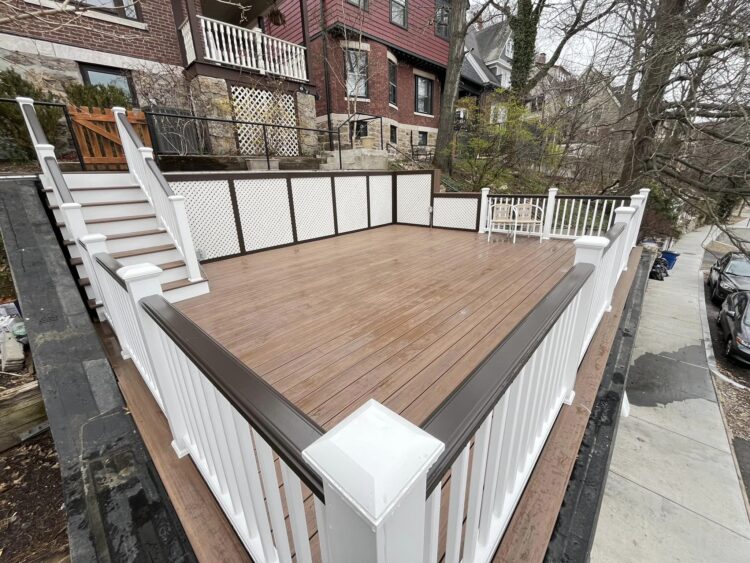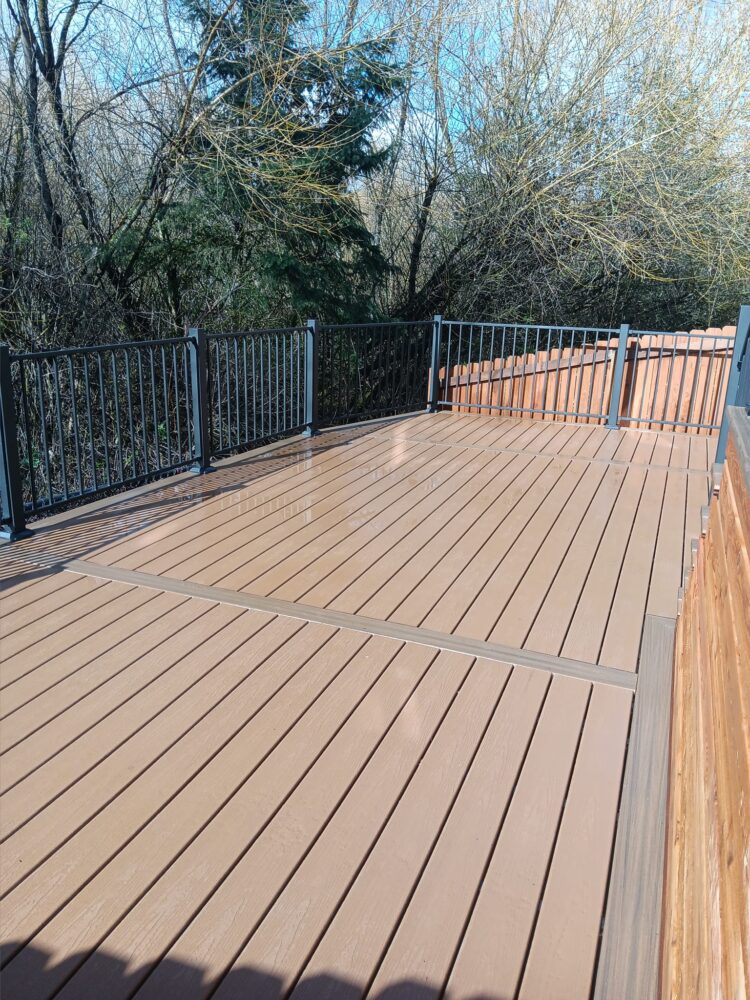Building a deck is more than just an addition to your home; it’s a transformation of your outdoor living space, a bridge between your indoor comfort and the natural beauty of Toronto’s surroundings. Whether you dream of cozy evenings with family or lively weekend gatherings, planning your deck carefully ensures it meets your expectations and enhances your lifestyle.
In this comprehensive guide, we’ll walk you through the critical steps of planning and constructing your deck, from understanding your needs and preferences to selecting the right materials and complying with local building codes. We also cover budget considerations, choosing the right contractor, and maintaining your deck through Toronto’s varied seasons. Our aim is to empower you with the knowledge to make informed decisions and create a deck that not only adds value to your property but also brings joy for years to come.
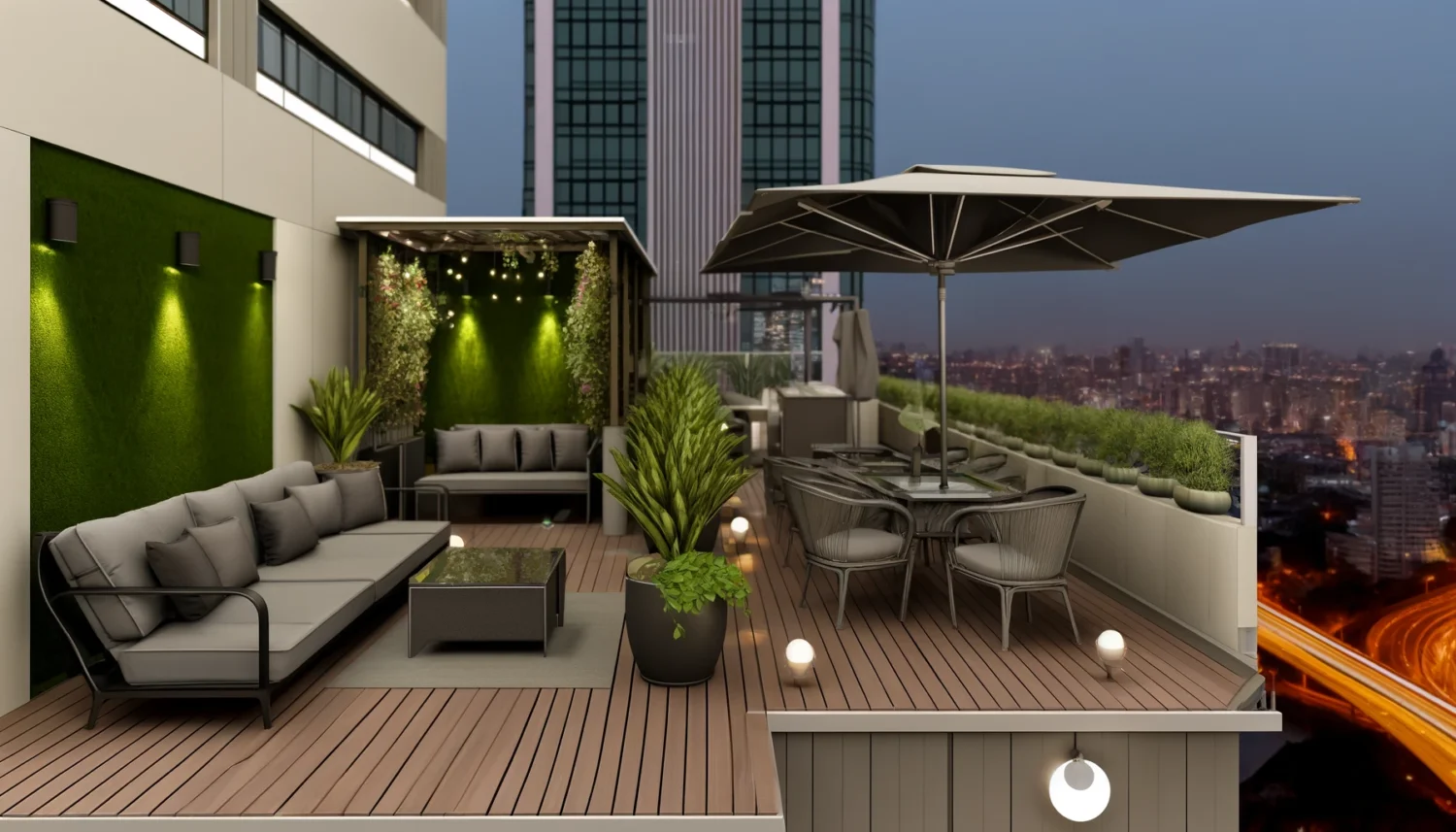
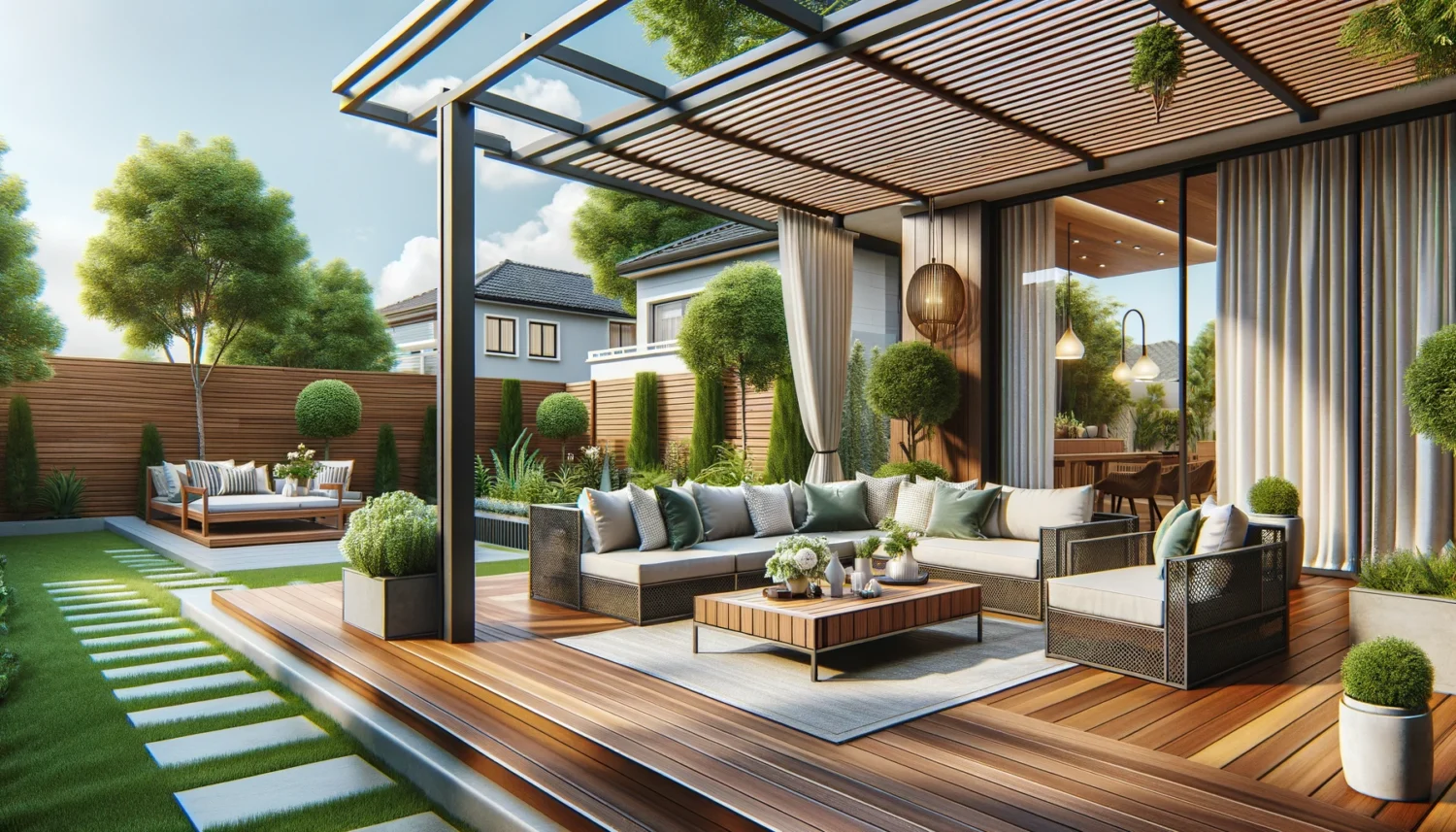
Defining the Purpose of Your Deck
Before you sketch out any designs or choose materials, consider what your deck’s primary function will be. Decks can serve various purposes:
- Entertainment: A large, sturdy deck with ample space for dining tables and a barbecue might be ideal if you love hosting gatherings.
- Relaxation: A more secluded, quiet deck with built-in benches and soft lighting can be perfect for relaxing outdoors.
- Family Space: If your family needs a safe play area outdoors, consider built-in seating and child-friendly features.
Thinking about these details will guide your design choices and ensure that your deck suits your lifestyle.
Considering the Needs of All Family Members
Include all family members in the planning process. If you have pets, consider materials that are durable and easy to clean. For children or elderly family members, think about accessibility, such as ramps or non-slip surfaces.
Scale and Complexity of the Project
Decide early on how large and complex your deck project should be. Keep in mind that larger decks with multiple levels or unique features like fire pits or water features can significantly increase the cost and construction time.
Design Considerations
A well-designed deck is a seamless extension of your home’s style. Here are some aspects to consider:
Complementing Your Home’s Architecture
Your deck should match the architectural style of your home. For traditional homes, a classic wood deck with intricate railings might be appropriate. For modern homes, consider sleek, minimalistic designs with composite materials.
Deck Styles and Trends in Toronto
Staying updated with local trends can also give your deck a contemporary feel. Mixed materials, such as combining wood with glass or metal accents, are popular in Toronto and offer both style and durability.
Importance of Material Selection
The choice of decking material impacts both the appearance and functionality of your deck:
- Wood: Offers a classic look but requires regular maintenance.
- Composite: Higher initial cost but minimal upkeep and longer lifespan.
Choosing the right materials involves balancing aesthetics, durability, and maintenance requirements to fit your lifestyle and budget.
When in doubt, remember that a construction site is the only place where you get to hit things to make them work
John “Hammer” McLeod
Choosing the right materials
Selecting the right decking material is crucial for the durability and appearance of your deck. Here’s a breakdown of the most popular choices in Toronto, along with their pros and cons:
Wood Decking
Wood is a traditional choice that offers natural beauty and warmth. Popular options include:
- Pressure-Treated Lumber: Affordable and widely available, this wood is treated to resist rot, mold, and insects. However, it requires regular maintenance such as staining and sealing.
- Cedar and Redwood: These woods are naturally resistant to decay and pests. They offer a beautiful color and texture but are more expensive than pressure-treated lumber and also require regular maintenance.
Composite Decking
Composite decking is made from wood fibers and recycled plastics, making it an eco-friendly option. Its advantages include:
- Durability: Composite decks are resistant to rot, warping, and pests.
- Low Maintenance: They do not require staining or sealing and are easy to clean.
- Variety of Colors and Styles: Composite materials come in various colors and textures that mimic the look of natural wood.
While composite decking is more expensive upfront, the long-term savings on maintenance can make it a cost-effective choice.
Other Materials
- Aluminum: Lightweight and extremely durable, aluminum decking is resistant to weather and pests. It’s also a fireproof option.
- PVC: PVC decking offers a variety of color options and is highly resistant to moisture, making it ideal for Toronto’s snowy winters.
When choosing materials, consider the climate in Toronto. The material should withstand cold winters and humid summers without excessive maintenance.
Legal Requirements and Permits in Toronto
Before construction begins, it’s essential to understand the local building codes and permit requirements to ensure your deck is built legally and safely.
Building Permits
Most deck projects in Toronto require a building permit, especially if the deck is more than 24 inches above the ground. The permit ensures that your deck design complies with local building codes.
Zoning Laws
Zoning regulations will affect where you can build your deck and how large it can be. These laws ensure that your deck does not encroach on property lines or violate city ordinances.
Working with a Licensed Contractor
Hiring a licensed contractor who is familiar with Toronto’s building codes and permit process is invaluable. They can handle the paperwork and ensure that your deck meets all legal requirements, avoiding potential fines and complications.
Budget Planning
Creating a realistic budget for your deck is essential to ensure that your project doesn’t stall due to financial constraints.
Cost Factors
- Size of the Deck: Larger decks require more materials and labor, increasing costs.
- Materials: Wood is generally less expensive upfront than composite, but consider long-term maintenance costs.
- Features: Custom features like benches, railings, and multiple levels will add to the overall cost.
Saving Costs
- Choose Simpler Designs: Complex designs with multiple levels and features are more expensive.
- Do Some Work Yourself: If you’re handy, doing some of the work yourself can reduce labor costs.
- Shop Around for Materials: Compare prices from different suppliers to find the best deals.
Maintenace and Upkeep
Proper maintenance is crucial to extending the life of your deck and keeping it looking its best. Here’s what you need to know about maintaining different types of deck materials, particularly in Toronto’s climate.
Wood Decks
Wood decks require regular maintenance to maintain their appearance and durability:
- Cleaning: Annually clean your wood deck to remove dirt, debris, and any growth of algae or mildew.
- Staining and Sealing: Apply stain and sealant every two to three years to protect the wood from moisture, which can lead to rot and warping. Choose products suited for Toronto’s weather conditions.
- Inspecting for Damage: Check regularly for signs of wear, such as loose boards or protruding nails.
Composite Decks
Composite decking is easier to maintain but still requires care:
- Routine Cleaning: Regular cleaning with soap and water is enough to keep composite decks looking fresh.
- Spot Treatment: For stains or scratches, use manufacturer-recommended products to avoid damaging the surface.
- Annual Checks: Although more durable, it’s good practice to inspect composite decks for any structural issues.
PVC and Aluminum Decks
These materials are the most durable and require the least maintenance:
- Simple Cleaning: Wiping down with soap and water periodically is usually sufficient.
- Visual Inspections: Regularly check for any loose components or signs of wear.
Regardless of material, keeping your deck clear of snow and ice during Toronto’s winters is essential to avoid surface damage and potential safety hazards.
Conclusion
Planning and building a deck in Toronto involves several important steps, from understanding your needs and selecting the right materials to navigating legal requirements and budgeting effectively. With the right approach and professional guidance, your new deck can become a cherished part of your home, enhancing your quality of life and increasing your property’s value.
Remember, a successful deck project is not just about building—it’s about creating a space that aligns with your lifestyle and preferences. Whether you are looking for a space to entertain, relax, or simply enjoy the outdoors, every decision should contribute to achieving these goals.
If you’re ready to start planning your deck or have any questions about the process, don’t hesitate to contact us. Our team of experienced professionals is here to help you every step of the way, ensuring that your deck is beautiful, functional, and built to last. Let us help you turn your dream deck into a reality!

